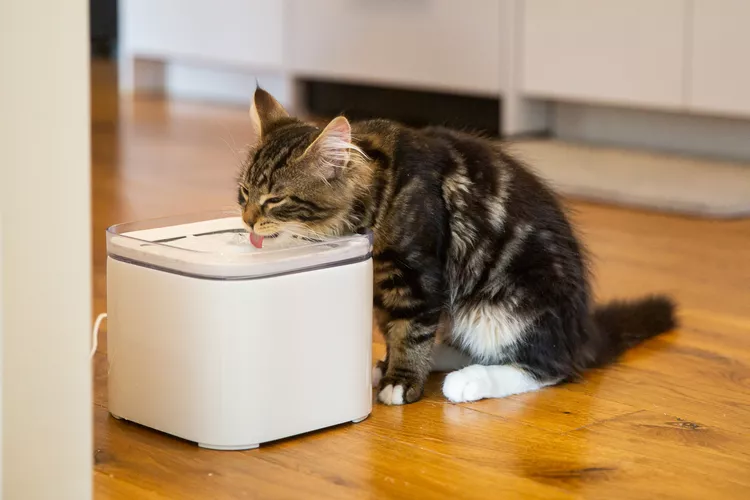How Much Water Does an Adult Cat Need to Drink?

Cats need fresh drinking water every day for optimum health. Water is essential for helping the kidneys flush out toxins from the blood. Whether from illness or lack of fluids, dehydration in cats is dangerous, and if not treated, can lead to death.
Cats in kidney failure, either acute or chronic renal failure, often require extra fluids given either intravenously or by subcutaneous drip. The latter therapy is often carried out at home and is relatively easy to learn and perform. With most cats, the improvement after these treatments is significant and visible.
Excessive Water Intake
Excessive drinking of water can be a red flag for feline hyperthyroidism or feline diabetes. While cats may instinctively drink more during hot weather, it is important, as with all cats' habits, to know how much a cat drinks normally. If they suddenly start consuming large quantities of water and also shows other symptoms, an immediate veterinary consultation is indicated.
Water Needs Depends on Diet
Cats' body tissues consist of about 67 percent water. Coincidentally, that is approximately the percentage of water in the prey they catch and eat in the wild. In contrast, dry cat food contains between 6 and 10 percent water and canned cat food has at least a 75 percent moisture content, making it a good source of water. Therefore, a cat on an all-dry food diet would require more supplemental drinking water than a cat on an exclusive raw or canned food diet. Likewise, a cat on a combination of dry and canned cat food also needs more drinking water.
Dr. Jennifer Coates, in an article for PetMd.com, created a formula suggesting that a 10-pound adult cat on a dry food diet needs about a cup of water a day. The same cat on a canned diet needs about a third a cup of water daily.
Recommendations
- Keep fresh, clean water available at all times for all cats, regardless of diet, preferably with an automatic water dispenser.
- Watch for signs of dehydration. A good test is to pull up the loose skin at the nape of the neck. If it springs right back, the cat is sufficiently hydrated. If it is slow to recede, suspect dehydration. Try adding water to your cat's canned food or adding an ice cube or two to their drinking water to make it more interesting. If the neck skin does not appreciably recede, and the cat shows any other sign of sickness, call your veterinarian immediately.
- Know your cat's drinking habits. If they suddenly go "off water" or start drinking excessive amounts regularly, call your veterinarian.